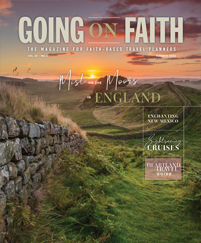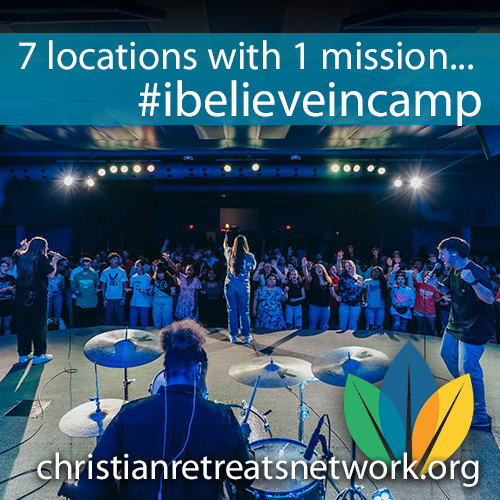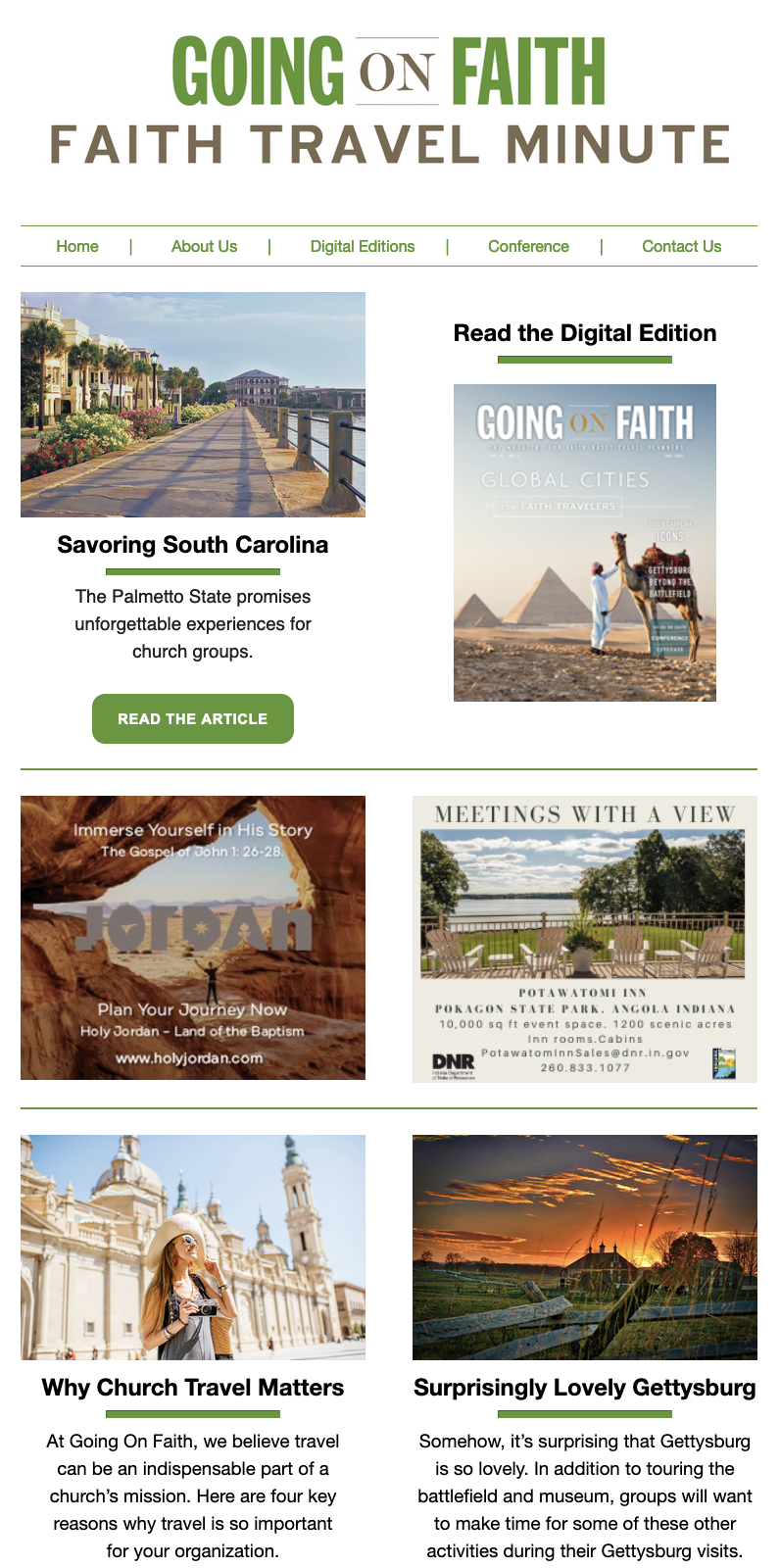What makes a faith-based tour different than any other group trip?
That’s a question I get all the time, particularly when I’m talking with people who aren’t very familiar with the faith travel market. The answer isn’t always as simple as people expect. But understanding it can help you maximize the success and impact of your church’s travel program.
When many people think of faith-based travel, they imagine trips to the Holy Land, the Vatican or other pilgrimage destinations. And church groups do travel to those places (as do many secular groups). But those aren’t the only places churches go. Faith-based groups like yours travel all over the United States and around the world. Like any other travel lovers, faith-based travelers want to explore all kinds of destinations, and they aren’t restricted by the fact they’re on a church-sponsored trip.
There are also no restrictions about what faith groups will do in a destination once they get there. Like other travelers, your church members probably enjoy visiting historic sites, museums and mainstream attractions on the road. They might include a historic church tour or something similar along the way. But they’re also going to hit the other highlights in a city. And they enjoy shopping and dining just like any other group.
Granted, some churches avoid certain kinds of travel activities, particularly those that include gambling, alcohol or, these days, marijuana. But the faith-based travel community is large and diverse. And there are plenty of church travel planners who include wineries or casinos on their itineraries.
What makes church travel unique isn’t what people are doing on trips. It’s why they’re doing it.
Church groups travel with a distinctive purpose. Church groups travel together in service of the Great Commission. Their leaders, people like you, do the hard work of planning trips because they see the impact these trips can make in their churches and their communities.
There are probably other organizations in your area that offer group travel. Some of them may be for-profit tour companies that take people on trips to make money. There’s nothing wrong with that, of course, but it’s not as impactful as what you do.
Others may be affinity groups that use travel as a way of increasing member loyalty. That’s a good thing. But a strong affinity organization will never have the eternal significance of a strong and growing community church.
As a church travel planner, you have the awesome opportunity to play an active role in people’s spiritual journeys. You can introduce people to new places, but you also have the chance to welcome outsiders into your fellowship. You help people have fun, but you also help them grow in their faith. And as your program succeeds, so does your church.
What makes your trips different than those that everyone else is taking? It’s probably not where you’re going or what you do when you get there. Instead, it’s the relationships you’re building and the lives you’re changing.










